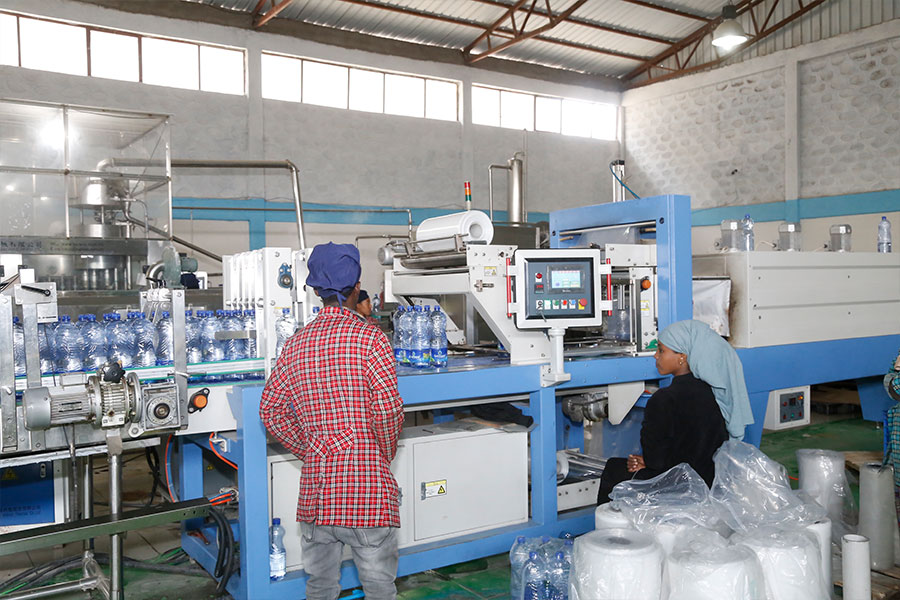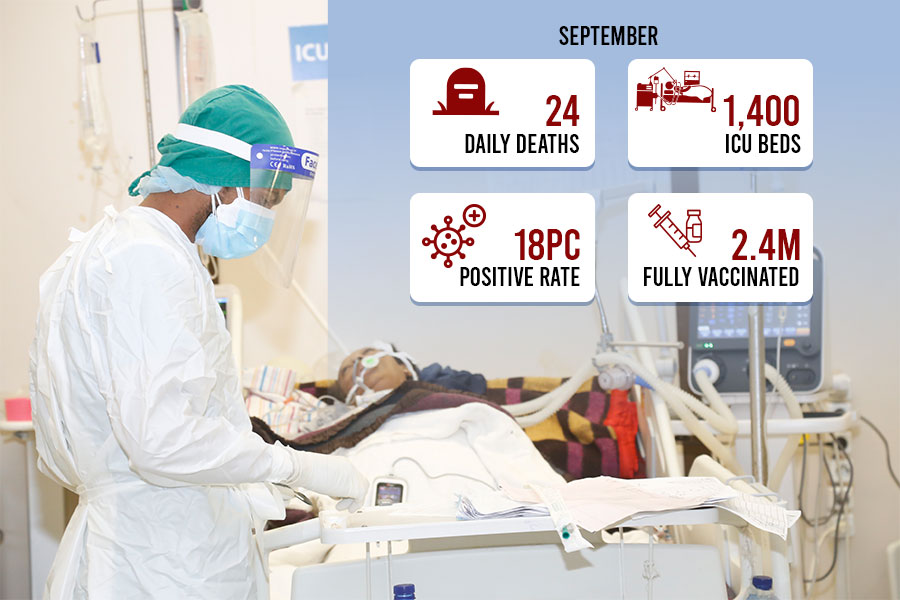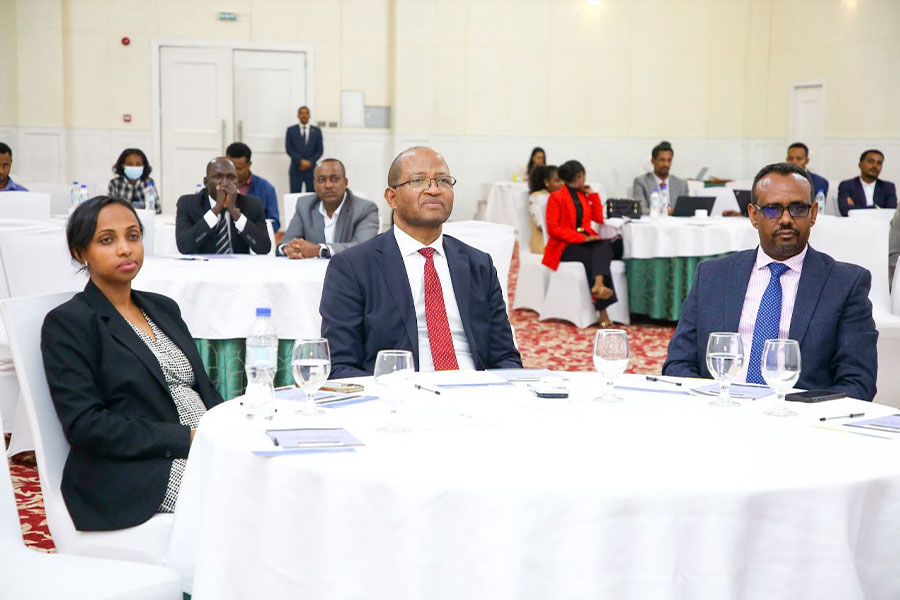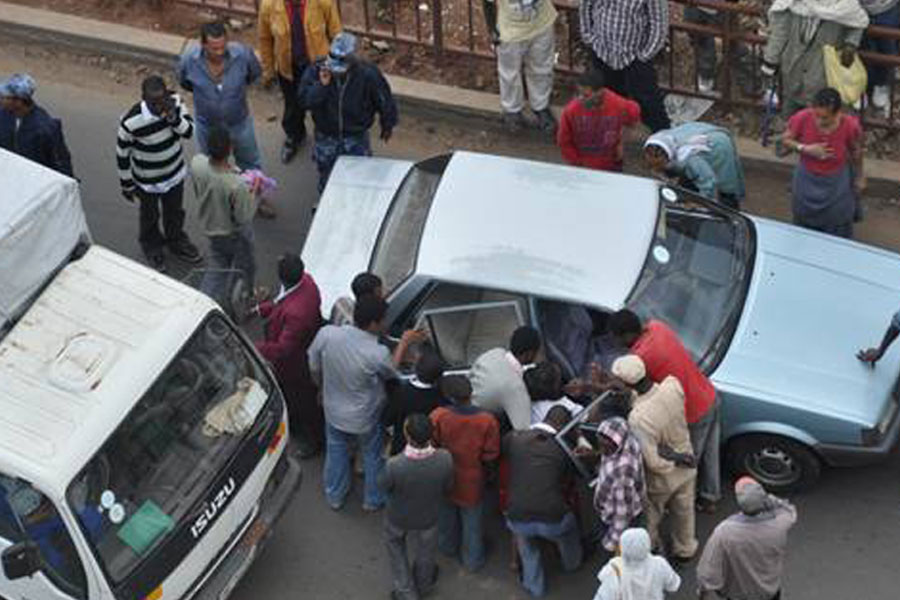
Radar | Dec 19,2021
Frontline healthcare workers are given priority for vaccination against COVID-19, which began on March 13, 2021, and over 27,000 of them have so far received their inoculations. This puts the total number of people who have received the vaccine in Addis Abeba to more than 59,000.
Ethiopia has been using the AstraZeneca COVID-19 vaccines, after receiving over 2.2 million doses through the COVAX initiative, beginning March, a year after the first case was detected in 2020. Produced by the Indian Serum Institute, the second shipment of 5.4 million doses is expected to arrive next month. China has also donated 300,000 doses of its Sinopharm vaccine at the end of March, though these jabs have yet to be offered at the health centres.
The available vaccine is currently being administered throughout the city's 10 districts in 20 selected health centres, Seife Demissie, director of the Pharmaceutical Supply & Service Directorate at the Addis Abeba Health Bureau, told Fortune.
As per the policies of the Ministry of Health, the majority of recipients are either above the age of 65, or between 55 and 64 but have been diagnosed with underlying health conditions such as hypertension or diabetes. Those above 65 need only to show their woreda ID card to receive the vaccine, while those with underlying health conditions must present medical documents. Residents belonging to the latter group can get a screening at the health centres and receive the jab without documentation.
There has not yet been provision of vaccines at any private health facilities.
Gotera Masalecha Health Centre, in Kirkos District, started vaccinating people on April 5, 2021. Over 171 people were given the vaccine during the first three days.
The AstraZeneca vaccine has not been tested on pregnant women and breastfeeding mothers, although there is no study claiming the vaccine is unsafe for them. The Health Centre is informing pregnant women and breastfeeding mothers but allowing them to make their own choices, according to Bahiru Alemayehu, chief medical director of operations at the Centre.
Potential side effects of the AstraZeneca vaccination have also been a point of much debate in recent months.
"Just as with any other vaccine, the AstraZeneca might result in common side effects such as mild fever, fatigue, or nausea, which varies from person to person," said Seife.
With underlining conditions of asthma and diabetes, Ahmed Wolle had a headache, felt nauseated at times, and experienced some muscle pains after the jab.
"Some of my colleagues had a bit of pain in the arm where they took the vaccination," said Seile Argaw (MD) from Teklehaimanot General Hospital. "It's been more than a week since I took the vaccine. I haven't experienced any side effects so far."
Despite earlier claims that AstraZeneca may cause blood clotting, there have not been any such cases reported to either the Addis Ababa City Administration Health Bureau or the Ministry of Health.
It has been a full year since the first COVID-19 related death was registered in the country. The death toll surpassed 3,000 last week, making the wider provisions of the vaccine life-saving.
The start of COVID-19 vaccination has brought some hope to the current surge in reported cases.
PUBLISHED ON
Apr 10,2021 [ VOL
22 , NO
1093]

Radar | Dec 19,2021

Agenda | Apr 02,2022

Agenda | Sep 28,2019

Sunday with Eden | Dec 19,2021

Fortune News | Sep 18,2021

Fortune News | Jun 29,2019

Radar | May 31,2025

Fortune News | Dec 25,2021

Radar | Apr 15,2023

Films Review | Mar 28,2020

Dec 22 , 2024 . By TIZITA SHEWAFERAW
Charged with transforming colossal state-owned enterprises into modern and competitiv...

Aug 18 , 2024 . By AKSAH ITALO
Although predictable Yonas Zerihun's job in the ride-hailing service is not immune to...

Jul 28 , 2024 . By TIZITA SHEWAFERAW
Unhabitual, perhaps too many, Samuel Gebreyohannes, 38, used to occasionally enjoy a couple of beers at breakfast. However, he recently swit...

Jul 13 , 2024 . By AKSAH ITALO
Investors who rely on tractors, trucks, and field vehicles for commuting, transporting commodities, and f...

Oct 11 , 2025
Ladislas Farago, a roving Associated Press (AP) correspondent, arrived in Ethiopia in...

Oct 4 , 2025
Eyob Tekalegn (PhD) had been in the Governor's chair for only weeks when, on Septembe...

Sep 27 , 2025
Four years into an experiment with “shock therapy” in education, the national moo...

Sep 20 , 2025
Getachew Reda's return to the national stage was always going to stir attention. Once...